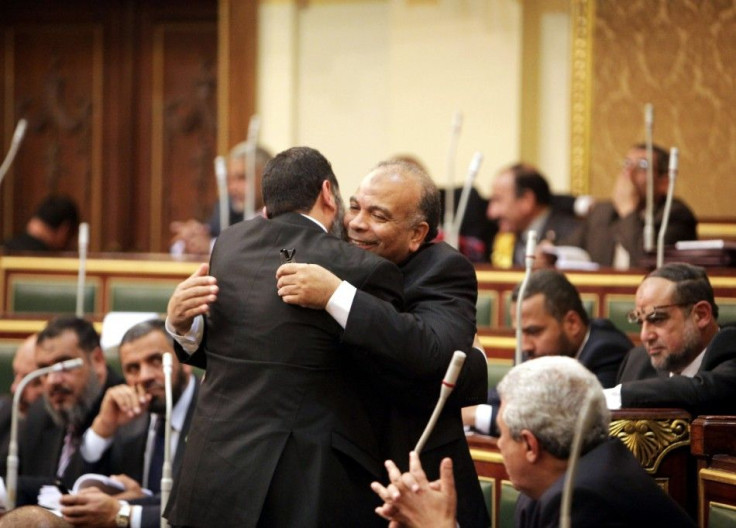Power Struggle Escalates in Egypt As Brotherhood Seeks To Topple Government

The power struggle between Egypt's Muslim Brotherhood and the military-appointed government has escalated with the Islamists in the parliament drawing up a no-confidence motion against the government.
Relations between the military and the Brotherhood, the single largest political force in the parliament, have deteriorated in recent weeks after the latter called on the military to sack the cabinet for alleged incompetence. The Islamic conservatives have also called for a new form of government, citing the nation's deteriorating security and economy.
Thursday's session saw the Brotherhood lawmakers accusing Prime Minister Kamal el-Ganzouri's government of poor performance, following which six of the government ministers walked out of the proceedings, Associated Press reported.
Lawmakers have started drafting a motion for a vote of no confidence in the government, which will be put to vote in the parliament in the next couple of weeks, parliamentarian Hussein Ibrahim said. The Brotherhood and other Islamist parties hold nearly 75 percent of the seats in the parliament.
Though the interim constitution doesn't give the parliament the power to dismiss the cabinet, a successful no-confidence vote would be a severe blow to the ruling military.
The Islamists and the military -- both of which got wider influence and powers after the fall of Hosni Mubarak -- have been vying with each other in the run-up to the upcoming presidential election.
Apart from its conflicts with the government, the Brotherhood also faces sharp internal divisions. It has not decided if it should field a candidate in the presidential elections.
The Brotherhood had promised for more than a year that it would refrain from contesting in the presidential race, in an effort to dispel fears that it would try to take control of the country post-Mubarak.
However, its officials suggested last week that the group is considering fielding a candidate, drawing sharp criticism from its own members as well as the opposition.
The Brotherhood is skeptical of taking full control of the situation, despite being the single most powerful entity in Egyptian politics, since that would make them an easy target to blame for whatever that goes wrong during the political transition, political analysts say.
The Muslim Brotherhood wants the gains without paying the price, wrote Ma'mun Findi in al-Sharq al-Awsat. The Muslim Brotherhood prefers to be in the seats of the critics in order to gain popularity on television, rather than to shoulder the major political and social responsibilities that come with the presidency.
It's an unprecedented crisis in the Brotherhood, a prominent member of the group told Washington Post on condition of anonymity. Going back on their word is wrong. Islamists have to have morals.
Tuesday's meeting of senior Brotherhood members broke up without consensus on whether or not to field a presidential candidate.
© Copyright IBTimes 2025. All rights reserved.






















